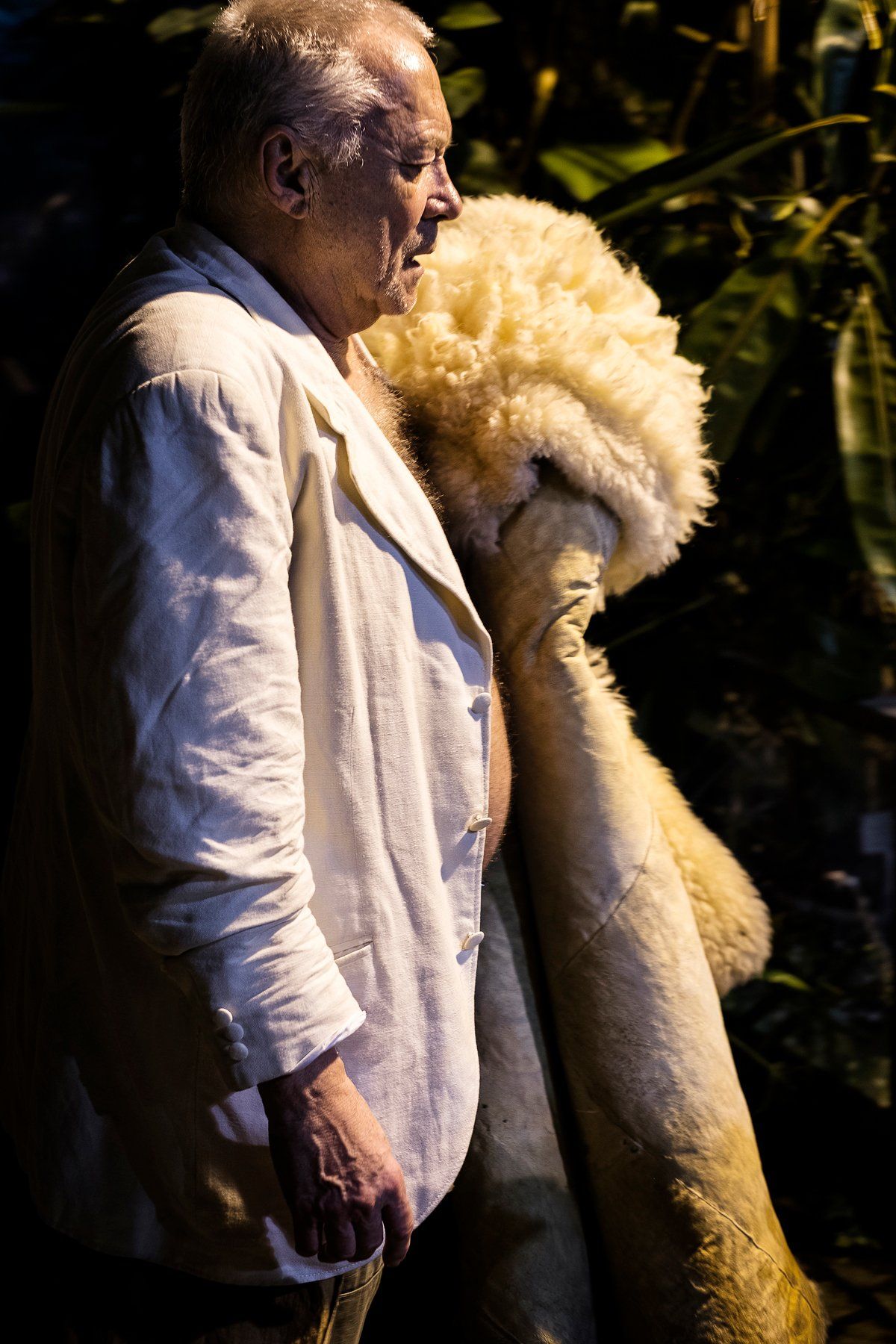Thus, the greenhouse on the Hardt will not only be one of the most extraordinary stage sets of the entire season, but also an active part and framework of the events. The eerily large shadows of the plants illuminated from the ground, together with the occasional recorded sound and voice, create a space removed from reality, which Miko Greza is able to completely occupy with his dignified presence. When he finally looks from the other side of the partly steamed-up glass wall into the densely overgrown auditorium and forms the words that are also echoing through the loudspeakers next door, the eerie parallel world of the realm of the dead seems almost tangible.
Torsten Krug's version of the 'Odyssey' was not included in the current season for nothing: the depiction of Odysseus as an aging survivor instead of a celebrated adventurer gives the material a new seriousness and oppressive topicality. The atmospheric setting of the production and the proximity to the actor, which almost lets the audience become part of the play, create an intense theater experience for all the senses - far removed from the usual, distant, passive spectator existence. This is how theater works today!
Julia Wessel, literature and culture magazine "Auf der Höhe"
Greza plays a strong man who can only partially hide his overflowing emotions and seemingly uncontrollable affects behind a hard-nosed cool facade. Again and again the desperation breaks out over what she has experienced, again and again Greza surprises with outbursts, with moments of mental derailment.
Between the plants, in which Greza moves freely and, pulling the audience with him, is always looking for new stations for his story, deeply impressive images are created. Both aesthetically and emotionally.
Well dosed sound effects - such as the sound of the sea - give the glass house a mystical, unreal mood. This free but well thought-out play with the scenery reaches a climax when Greza leaves the glass house to let Odysseus in Hades - the underworld - be effectively illuminated behind the glass, from the outside, as if from another dimension.
Despite all the introspection, it is possible to tell the story of Odysseus in just over an hour with all the central turning points, which makes the play, loosely based on Homer, easy to understand even for those less versed in ancient Greek epic. Torsten Krug doesn't let his work suffocate in obscure capriciousness on the pure meta-level of a war-damaged figure, he opens perspectives on all levels.
Christian Oscar Gazsi Laki,
West German newspaper
Director Torsten Krug has created a coherent version of the text that finely balances the old style and modern allusions. He doesn't show Odysseus as a radiant hero under palm trees (...) but as a broken man. (...) As a war hero who becomes a gardener, Miko Greza is not just a stunner in person. The images of how he appropriates the greenhouse from the inside and outside stick in his mind for a long time.
Anne Grages, West German Newspaper






